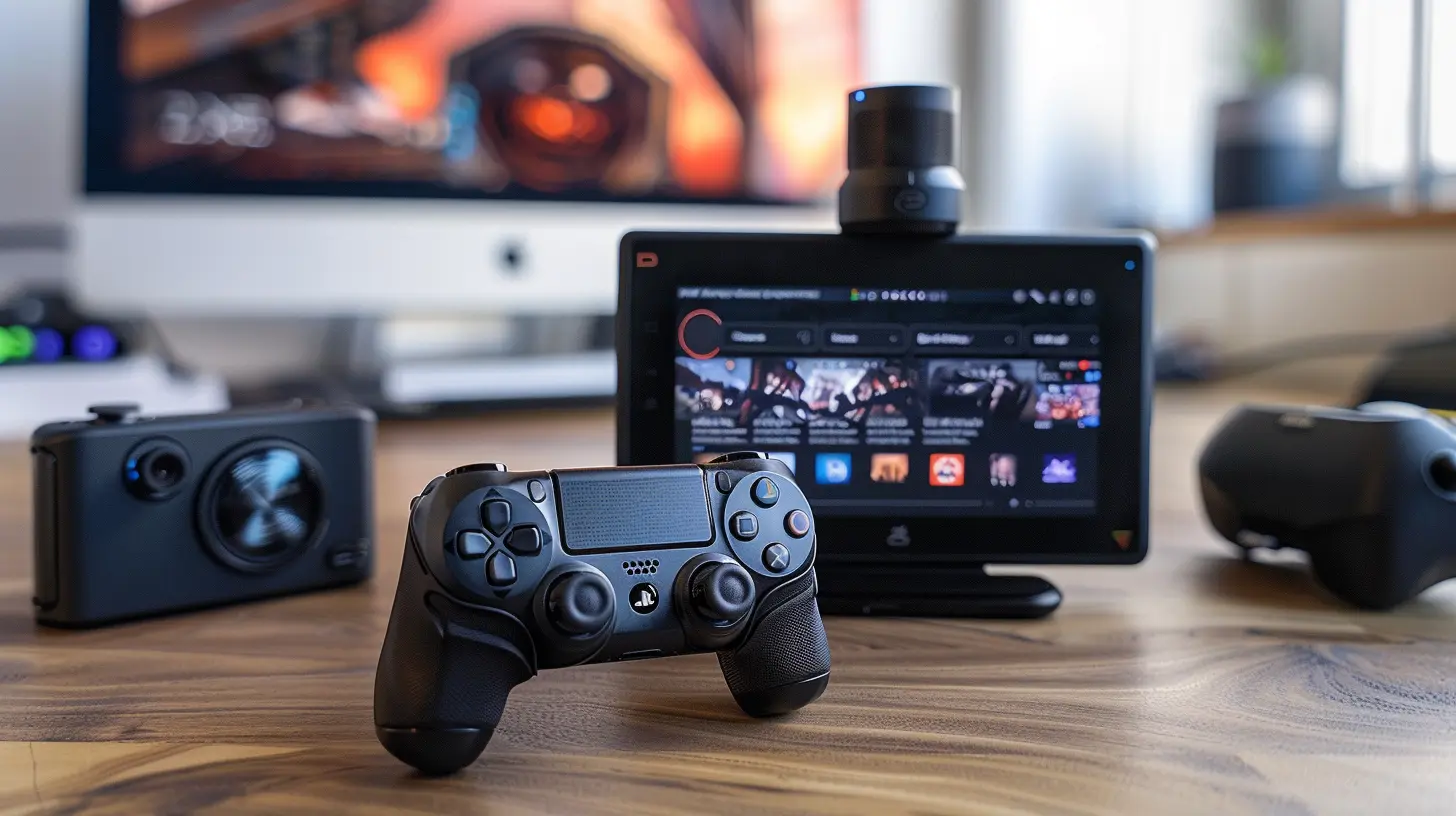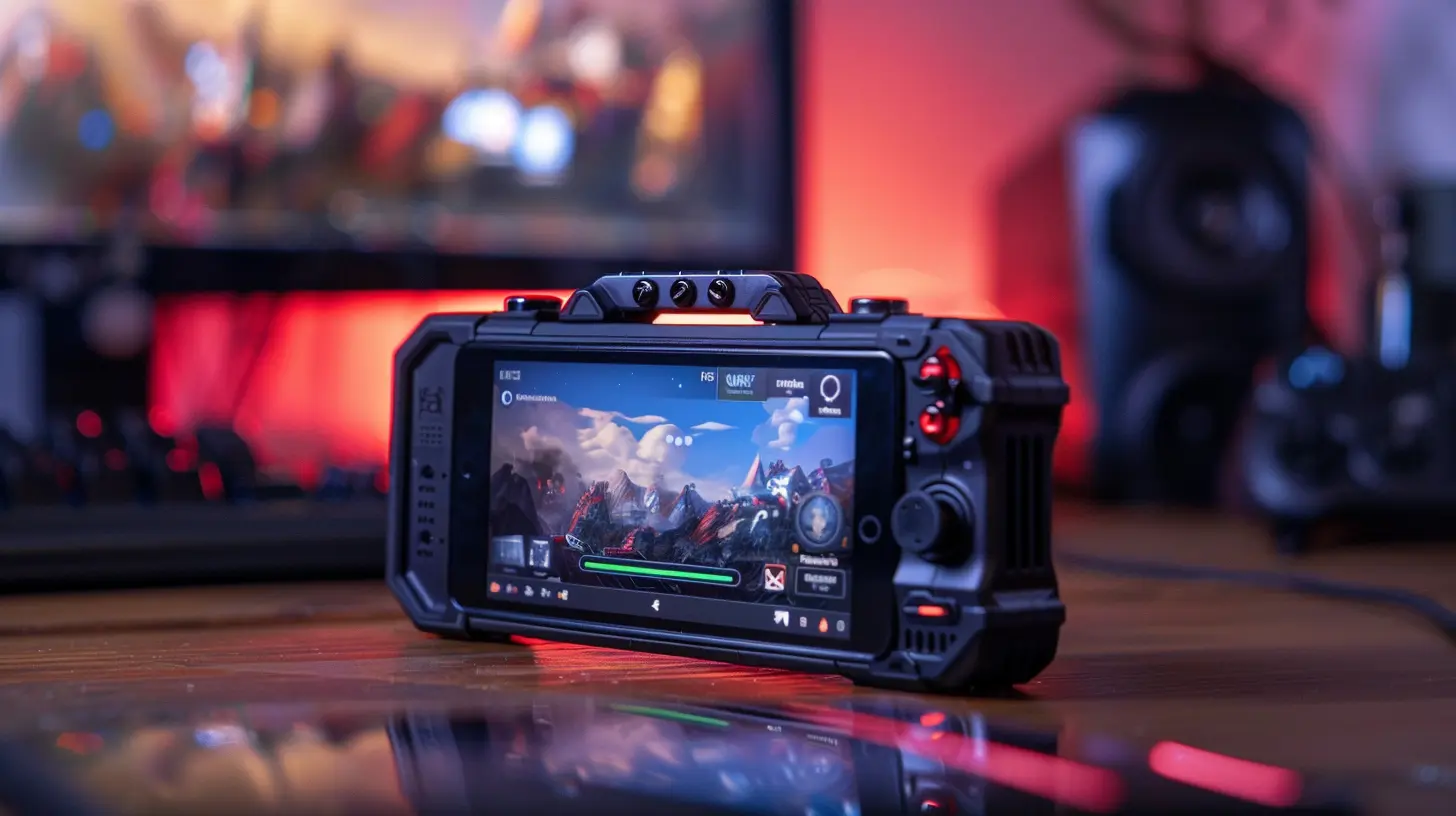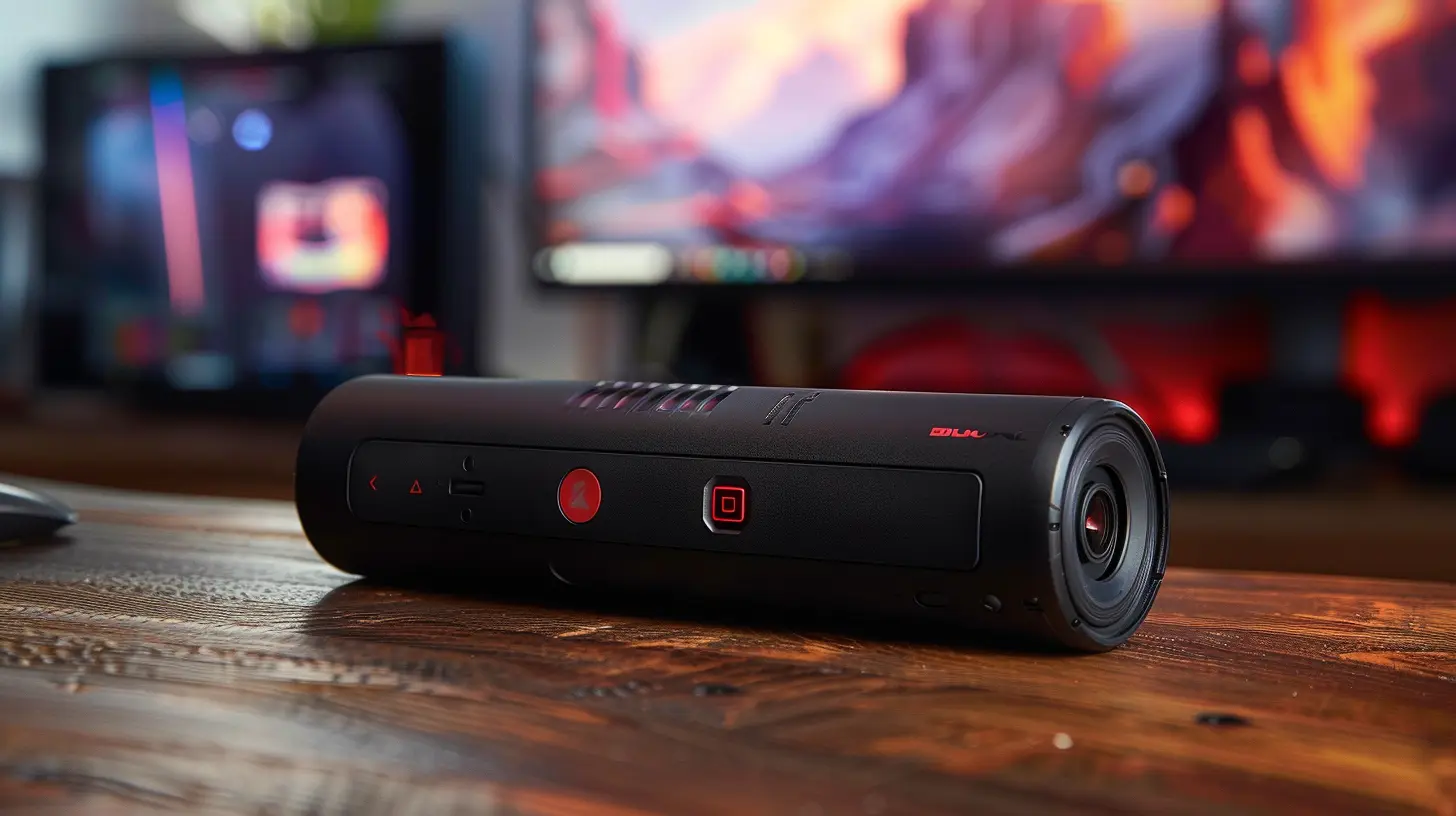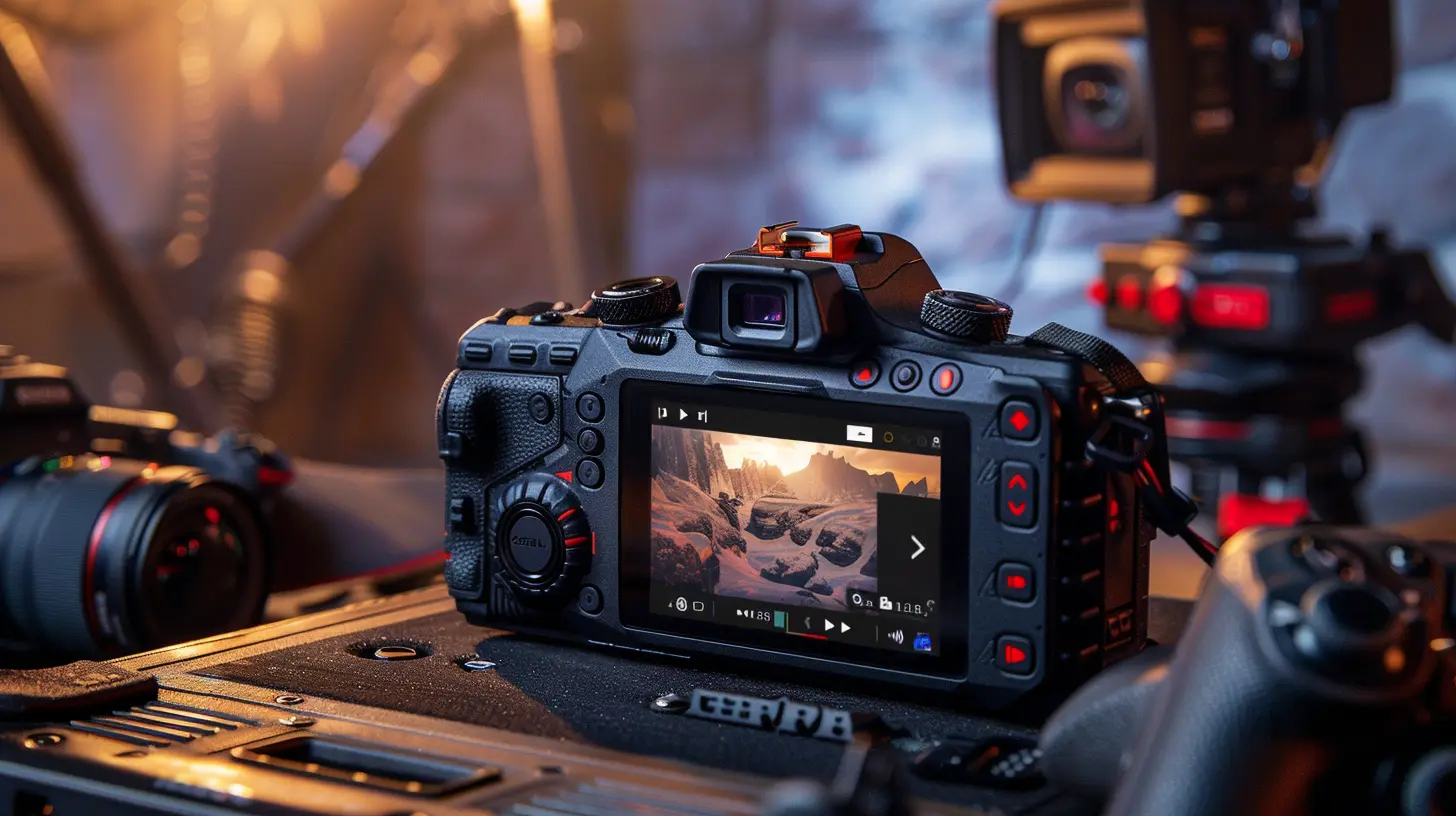The Best Game Capture Devices for Streaming and Recording
21 October 2025
If you’re serious about streaming or creating high-quality gaming content, then you already know—your gameplay alone isn’t enough. You need solid gear backing you up, and that’s where game capture devices come into play. These little gadgets are your ticket to clean, crisp, and lag-free recordings or livestreams. But with so many choices on the market, which one’s actually worth your cash?
Grab a drink, sit back, and let’s dive into the best game capture devices for streaming and recording. Whether you're a seasoned Twitch veteran, a budding YouTuber, or just want to archive your epic wins, this guide will help you find the perfect fit for your setup.
What Exactly Is a Game Capture Device?
Before we get into the nitty-gritty, let’s clear the air—what is a game capture device? It’s basically a middleman between your gaming console or PC and your recording/streaming software. Imagine it like a high-def translator that turns your fast-paced gameplay into clean footage without skipping a beat.Some devices are external and plug in via USB, while others are internal PCIe cards you install in your PC. They’re designed to offload the recording/streaming load from your computer or console, resulting in smoother performance and better image quality.
Why You Actually Need One
Sure, some platforms or consoles offer built-in recording, but let’s be honest—it’s never the same. Built-in tools often mean lower resolution, dropped frames, and zero customization. Want overlays, simultaneous webcam feeds, or multi-channel audio? Yeah, you won’t get that without a capture card.If you want real control over your content, a capture card is not just a luxury—it’s essential.
What to Look For in a Game Capture Device
There’s no one-size-fits-all, but here's what should be on your checklist:- Resolution and FPS – Aim for at least 1080p at 60fps. If you’re going big, try 4K.
- Latency – Low-latency or near real-time capture is crucial, especially for live streams.
- Compatibility – Make sure it plays nice with your console (PS5, Xbox Series X, Switch, etc.) or PC.
- Streaming Software Support – OBS, Streamlabs, XSplit... it should support the tools you actually use.
- Ease of Use – You don’t want to spend hours messing with setup or drivers.
Now that we’ve got that out of the way, let’s talk hardware.
1. Elgato HD60 X – The Streamer’s Favorite
If you’ve dipped even a toe into the streaming world, you’ve probably heard of Elgato—and for good reason. The Elgato HD60 X is an evolution of their legendary HD60 S+ and it's arguably the best all-around external capture card for most people.Why It Rocks:
- Records and streams at 1080p60 or 4K30.- HDR10 passthrough—so your game still looks killer on your monitor.
- Works seamlessly with OBS, Streamlabs, and all the major platforms.
- Compact, plug-and-play USB-C design.
Real Talk:
Latency? Practically non-existent. Setup? So easy your grandma could do it. It’s that balance between performance and simplicity that makes the HD60 X a go-to choice for beginners and pros alike.2. AVerMedia Live Gamer Portable 2 Plus – The Portable Powerhouse
Want to stream or record on the go? The AVerMedia LGP2 Plus is a dream for content creators who bounce between setups or game at events.Highlights:
- Records up to 1080p60, with 4K passthrough.- PC-free recording—just plug in a microSD and go!
- Super easy switching between PC and standalone modes.
Honest Take:
It’s not quite as sharp in image quality as an internal card, but the trade-off is flexibility. If you travel, this one’s clutch.3. Elgato 4K60 Pro MK.2 – For the Hardcore Pros
Now we’re stepping into elite territory. The Elgato 4K60 Pro MK.2 is an internal capture card, meaning you’ll need a free PCIe slot in your PC. But the pay-off? Insane capture quality.Key Specs:
- True 4K at 60fps recording.- HDR10 support.
- Ultra-low latency preview via Elgato’s software.
Is It Worth It?
If you’re capturing high-end footage for YouTube or want the absolute best quality possible, this is the card you need. It’s overkill for casual streamers, but content creators will adore its beastly performance.4. Razer Ripsaw HD – The Underdog With a Punch
Razer might be known for keyboards and mice, but don’t sleep on the Ripsaw HD. It’s sleek, solid, and punches well above its price point.Features:
- 1080p60 capture, 4K passthrough.- Dual audio mix-in for commentary and game audio.
- Works well with both PC and console.
Pros & Cons:
+ Affordable+ Clean design
− No 4K recording, only passthrough
If you’re dabbling in streaming and looking for a budget-friendly device that looks and feels premium, this one's worth a serious look.
5. AVerMedia Live Gamer Duo – Webcam + Gameplay? Easy.
Multicam setups can get messy. The Live Gamer Duo fixes that with two HDMI inputs—one for your gameplay and another for your camera.What It Offers:
- 1080p60 on both channels, or 4K60 gameplay capture.- Easy OBS integration.
- Perfect for streamers who want real-time overlays from a DSLR.
Perfect For:
Those who want to step up their production quality without juggling multiple devices. It simplifies your workflow like crazy.External vs. Internal – Which Should You Choose?
This question gets thrown around a LOT. Here’s the real deal:- External Capture Cards – Ideal for beginners, streamers with laptops, or those who want portable setups. Think Elgato HD60 X or LGP2 Plus.
- Internal Capture Cards – Better performance, lower latency, and higher quality. Best for those with dedicated gaming rigs. Like the Elgato 4K60 Pro or Live Gamer Duo.
If you’re not sure, go external. You can always upgrade later.
Budget Picks That Don’t Suck
You don’t need to drop $300 to start streaming. There are decent low-cost options too.1. Mirabox USB 3.0 Capture Card
- 1080p60 capture- Works with most consoles and OBS
- Super cheap and works right out of the box
2. Genki ShadowCast
- Small and simple.- Plug into your console and use your laptop as a monitor.
- Great for casual gamers or Switch owners.
Just manage your expectations. Lower price often means cutbacks—less customization, more latency, or average video quality. But hey, it gets you in the game without breaking the bank.
Tips to Make the Most of Your Capture Device
Even the best card won’t help if your setup’s a mess. Here are a few quick tips:- Check your cables – A bad HDMI cable can tank your video quality. Always go with high-speed options.
- Keep your drivers updated – This fixes 90% of weird bugs and issues.
- Optimize your OBS settings – Resolution, bitrate, and encoder settings matter more than people think.
- Monitor CPU/GPU usage – Some cheaper capture cards offload more work onto your PC.
Tweak smart, and your streams will look buttery-smooth in no time.
Final Thoughts – Which One’s the Best?
Honestly, it depends on you.- Need plug-and-play ease? Elgato HD60 X is your best friend.
- Going pro with 4K content? Elgato 4K60 Pro is unbeatable.
- Want portability? Grab the AVerMedia LGP2 Plus.
- Multi-cam setup? The AVerMedia Duo wins, hands down.
- On a budget? Razer Ripsaw HD or Mirabox gets the job done.
Game capture devices are like Swiss army knives for your content—small tools with big impact. Find one that fits your needs, invest in solid accessories, and your streaming or recording setup will be ready for anything.
So what are you waiting for? Level up your content game and start capturing those highlight-worthy moments the right way.
all images in this post were generated using AI tools
Category:
Gaming AccessoriesAuthor:

Brianna Reyes
Discussion
rate this article
1 comments
Renee McTavish
Great article! It's helpful to see a concise comparison of game capture devices. Your insights will definitely aid gamers in choosing the right tools for streaming and recording. Thank you!
October 30, 2025 at 4:00 PM

Brianna Reyes
Thank you for your kind words! I'm glad you found the article helpful. Happy gaming and streaming!


